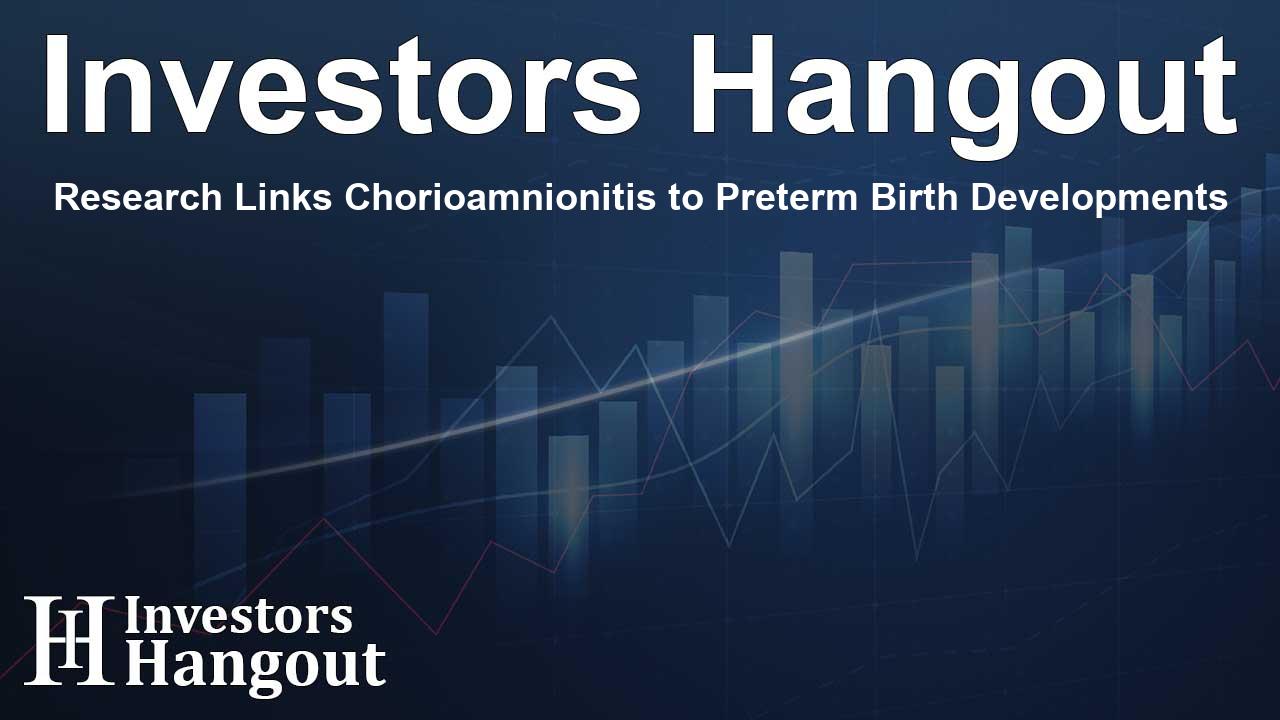Research Links Chorioamnionitis to Preterm Birth Developments

Chorioamnionitis and Its Impact on Early Birth
Recent research emphasizes the severe implications of moderate to severe chorioamnionitis (HCA) associated with preterm births. Experts from Cincinnati Children's Hospital have confirmed that these infections not only trigger preterm deliveries but also lead to significant neurodevelopmental issues in early childhood.
Study Insights on Neurodevelopmental Impairments
This groundbreaking study found that toddlers who were born preterm due to moderate to severe chorioamnionitis often exhibit cognitive, motor, and language impairments as they grow. These findings point to the lasting impacts that this bacterial infection can have on the developing brain, marking it as a significant concern for maternal and child health.
Understanding Chorioamnionitis
Chorioamnionitis is a serious bacterial infection affecting the amniotic sac, fluid, and placenta, which can lead healthcare providers to advocate for preterm delivery if detected. Symptoms typically include fever, rapid heart rate in both mother and fetus, and foul-smelling amniotic fluid. The prevalence of this condition is estimated between 1% to 5% across pregnancies, and it constitutes a leading cause of very early preterm deliveries.
Evaluating Brain Developmental Concerns
Historically, the correlation between chorioamnionitis and subsequent brain development has been a contentious issue among researchers. Many researchers have speculated whether the outcomes are primarily influenced by the factors surrounding preterm birth rather than the infection itself. This latest study aimed to clarify those uncertainties, following 300 children enrolled in the Cincinnati Infant Neurodevelopment Early Prediction Study (CINEPS).
Continued Research to Ascertain Impacts
The CINEPS study, supported by the National Institutes of Health, meticulously examined children exposed to chorioamnionitis, ensuring that only those with confirmed infections were included. This rigorous approach provided a reliable connection between the infection and neurodevelopmental effects that had been observed in previous studies.
Practical Implications for Families
The implications of these findings are profound for families. Recognizing that children impacted by chorioamnionitis may face long-term developmental risks accentuates the need for ongoing assessments and early interventions. The brain's capacity to adapt and rewire itself offers hope, yet this resilience thrives when potential developmental issues are identified quickly.
Future Directions for Research
Moving forward, researchers plan to investigate the detailed mechanisms of how chorioamnionitis affects brain development. Parikh and his cohort are testing the original CINEPS participants now that they are of school age, to monitor any enduring effects of the infection on learning and to evaluate the effectiveness of various interventions.
About the Research Team
In addition to Laura Peterson, MD and Nehal Parikh, DO, MS, other contributors from Cincinnati Children's include Shalini Roy, BS, Stephanie Merhar, MD, MS, and Karen Harpster, PhD, OTR/L. Collaborative efforts also involved Viral Jain, MD from the University of Alabama Birmingham. Funding for this important research has been received from key health institutions.
Frequently Asked Questions
What is chorioamnionitis?
Chorioamnionitis is a bacterial infection affecting the amniotic fluid, sac, and placenta, potentially leading to preterm birth.
How does chorioamnionitis impact brain development?
The infection is linked to cognitive and motor impairments in children born preterm, as confirmed by recent research.
What are the symptoms of chorioamnionitis?
Symptoms include fever, rapid heart rates in mother and fetus, and an unpleasant odor in the amniotic fluid.
What is the prevalence of chorioamnionitis?
Chorioamnionitis occurs in approximately 1% to 5% of all pregnancies.
Why is ongoing research important?
Ongoing studies aim to elucidate the mechanisms behind chorioamnionitis' effects on development and to develop strategies for early interventions.
About The Author
Contact Addison Perry privately here. Or send an email with ATTN: Addison Perry as the subject to contact@investorshangout.com.
About Investors Hangout
Investors Hangout is a leading online stock forum for financial discussion and learning, offering a wide range of free tools and resources. It draws in traders of all levels, who exchange market knowledge, investigate trading tactics, and keep an eye on industry developments in real time. Featuring financial articles, stock message boards, quotes, charts, company profiles, and live news updates. Through cooperative learning and a wealth of informational resources, it helps users from novices creating their first portfolios to experts honing their techniques. Join Investors Hangout today: https://investorshangout.com/
The content of this article is based on factual, publicly available information and does not represent legal, financial, or investment advice. Investors Hangout does not offer financial advice, and the author is not a licensed financial advisor. Consult a qualified advisor before making any financial or investment decisions based on this article. This article should not be considered advice to purchase, sell, or hold any securities or other investments. If any of the material provided here is inaccurate, please contact us for corrections.
